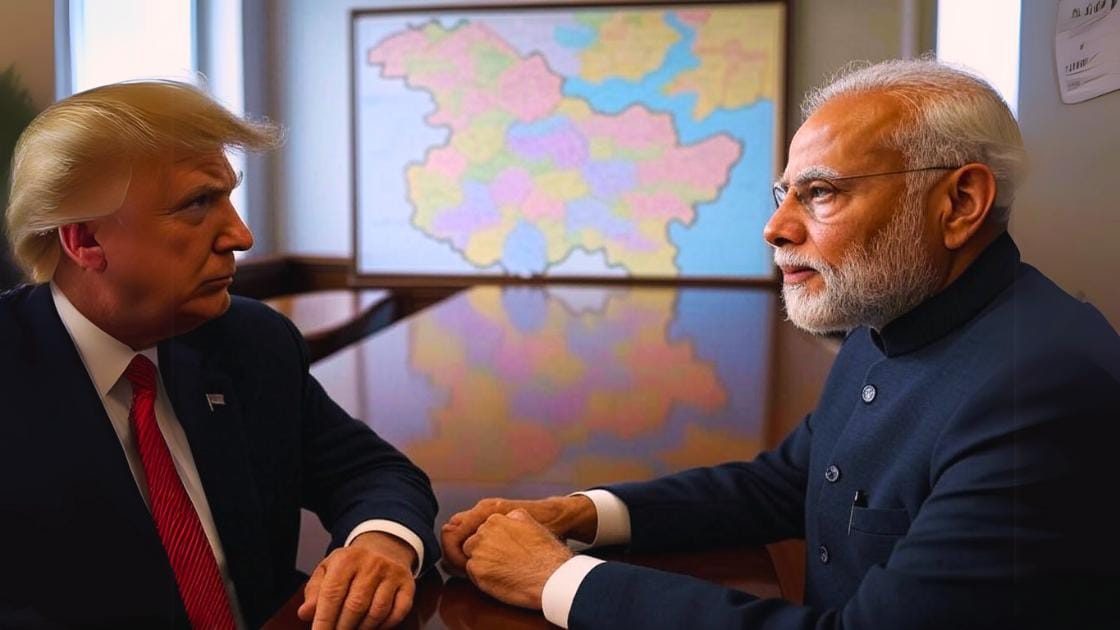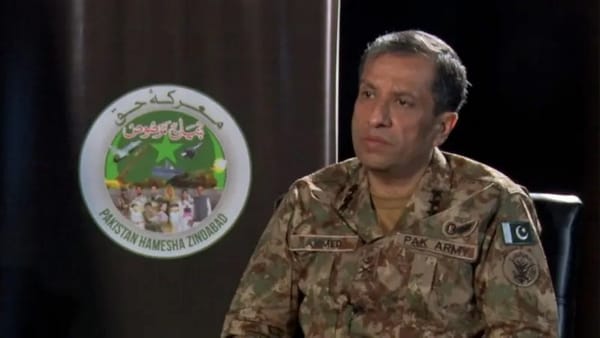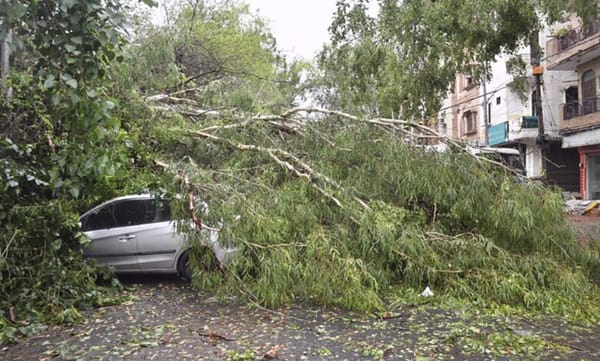Trump’s Kashmir Offer Puts India in a Tough Spot
Trump’s unexpected mediation offer on Kashmir has unsettled India, which rejects third-party involvement. As tensions with Pakistan rise, Delhi faces a diplomatic challenge, balancing its firm stance on Kashmir with maintaining ties with the U.S.

For decades, India has firmly opposed any third-party involvement in the Kashmir dispute, insisting it be handled bilaterally with Pakistan. So, when U.S. President Donald Trump claimed credit for brokering a ceasefire between the two nations and offered to help resolve the Kashmir issue, it struck a nerve in New Delhi.
Over the weekend, Trump posted on social media that India and Pakistan had agreed to a "full and immediate ceasefire" after several days of cross-border skirmishes. He followed up with an offer to assist both sides in seeking a lasting resolution to the decades-old Kashmir conflict.
The Kashmir dispute, rooted in the 1947 partition of British India, remains unresolved. Both countries claim the region in its entirety but govern separate parts. Efforts at bilateral dialogue have repeatedly failed, and India views Kashmir as an internal matter, strongly resisting outside involvement.
The recent escalation began after India conducted airstrikes in Pakistan, blaming it for a deadly attack on tourists in Indian-administered Kashmir. Pakistan denied involvement. The tension quickly escalated with both sides exchanging missile and drone strikes, raising fears of a broader conflict.
While Washington’s intervention may have helped de-escalate the immediate danger, Trump’s mediation offer has placed India in a difficult spot. Former Indian Foreign Secretary Shyam Saran noted the move contradicts India’s long-standing policy against third-party negotiation.
Pakistan, by contrast, welcomed Trump’s comments, viewing them as a diplomatic win. Islamabad has long favored international mediation, citing a lack of trust between the two countries.
India’s position on Kashmir has hardened since it revoked the region’s special status in 2019, a move that provoked unrest and international concern. Many in India saw Trump’s remarks as an attempt to internationalize the issue.
The U.S. State Department also mentioned upcoming talks between India and Pakistan on broader matters, surprising Indian officials, who maintain they will not engage in dialogue until Pakistan ends support for cross-border militancy.
India’s opposition to outside mediation is grounded in the 1972 Simla Agreement, which committed both nations to resolving issues bilaterally. Indian leaders also remain wary of Pakistan’s military, which has previously undermined diplomatic agreements, such as during the Kargil conflict in 1999.
While Trump’s administration seems more willing to engage in the Kashmir issue than his predecessors, India remains cautious. Foreign Minister S. Jaishankar reiterated India’s uncompromising stance against terrorism, signaling that bilateral talks are not imminent.
Pakistan, meanwhile, sees Trump’s involvement as validation of its stance and urges the global community to step in. Analysts warn that without dialogue, tensions could spiral again.
Despite the pressure, India must tread carefully. It is in the midst of trade negotiations with the U.S., its largest trading partner, and is also a key strategic ally in the Indo-Pacific, particularly through its role in the Quad alliance alongside the U.S., Australia, and Japan.
Balancing national interests, diplomatic relations, and domestic political sensitivities will be crucial for India, which is unlikely to entertain any significant shift in its Kashmir policy, regardless of Trump’s intentions.




